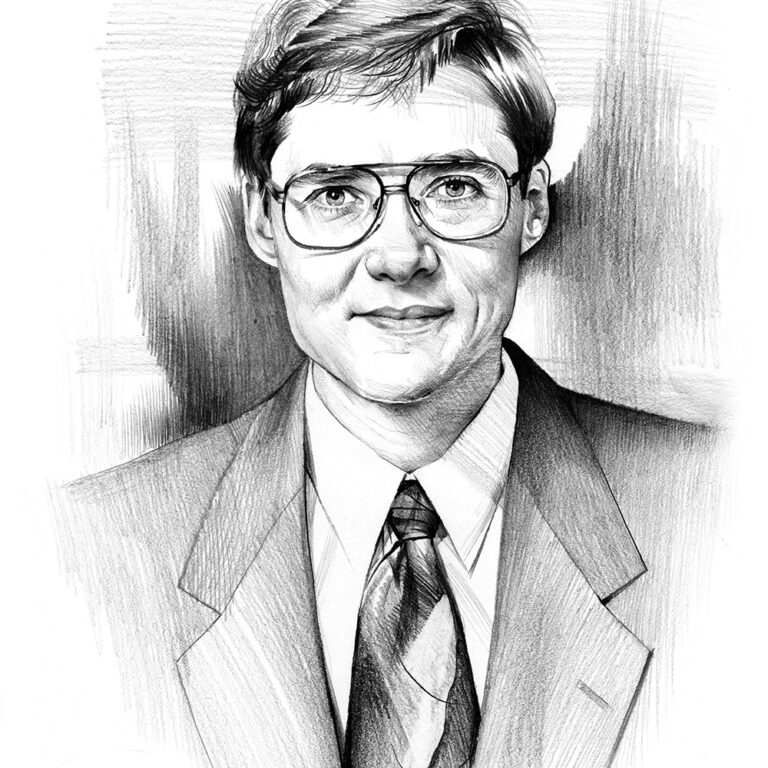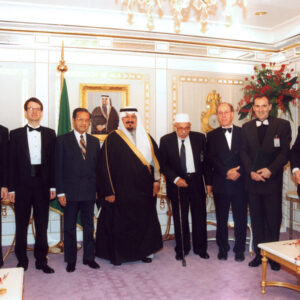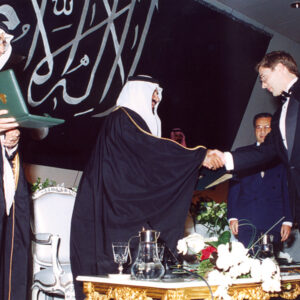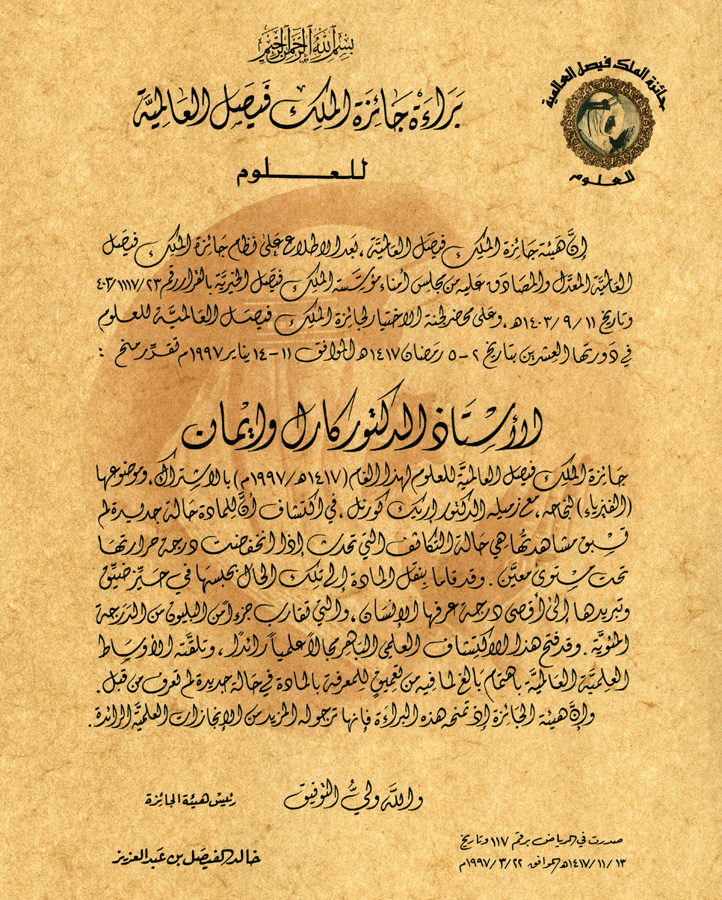

Professor Carl E. Wieman
King Faisal Prize in Science 1997 Laureate
Topic: "Physics "
Seven years ago, I had no idea that it would be so long and difficult, nor did I realize that the results would be so rewarding

Carl Wieman earned his B.S. from Massachusetts Institute of Technology and his Ph.D. in Physics from Stanford University. Following his graduation, he served as an Assistant Research Scientist at the University of Michigan, and became an Associate Professor in 1979. He moved to the University of Colorado inn1984, where he was appointed an Associate Professor then a full Professor of Physics in 1987. He served from 1993 to 1995 as a Chairman of the Joint Institute for Laboratory Astrophysics (JILA), a leading center for the study of atomic and molecular physics at the same university. He was also appointed as a Distinguished Professor at the University of Colorado in 1997.
In 1995, Professor Wieman and Professor Eric Cornell made history with their stunning success in producing the first true Bose-Einstein Condensate, a new form of matter that occurs at just a few hundred billionths of the absolute zero. This discovery, which earned them worldwide recognition, was achieved by cooling rubidium-87 atoms to an incredibly low temperature, using lasers, then trapping and holding these atoms virtually motionless with the aid of magnetic traps of the right kind of field, and evaporative cooling techniques.
Professor Weiman received countless awards including the E. O. Lawrence Prize, Davisson-Germer Prize, Einstein Medal for Laser Science, Fritz-London Prize, Newcomb-Cleveland Prize (AAAS), Richtmyer Memorial Lecture Award, and Bonfils-Stanton Foundation Prize. He was also awarded an Honorary Doctorate in Science by the University of Chicago. Professor Wieman is a Fellow of JILA, the Australian Academy of Sciences, and the American Physical Society.
This biography was written in the year the prize was awarded.
- He held many positions including:
- Chairman of the Scientific Education at The University of British Columbia in Canada in 2007.
- The White House’s Office of Science and Technology Policy Associate Director of Science in 2010.
- Professor of Physics at Stanford University in 2013.
- He received many awards and honors including:
- Lorentz Medal in 1998.
- R. W. Wood Prize in 1999.
- Schawlow Prize for Laser Science in 1999.
- Benjamin Franklin Medal in 2000.
- Nobel Prize in Physics in 2001.
- United States Professor of the Year in 2004.
- Oersted Medal in 2007.



